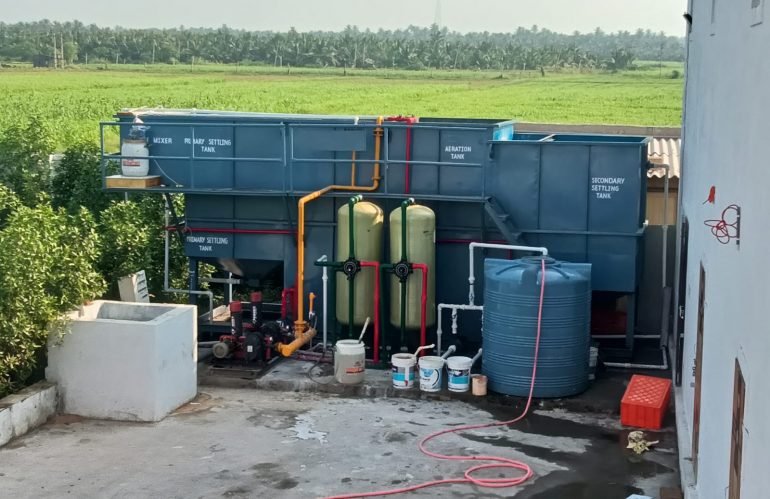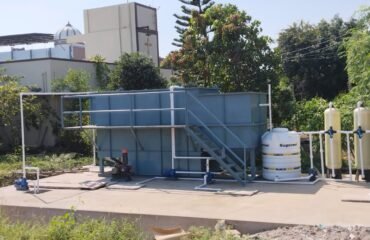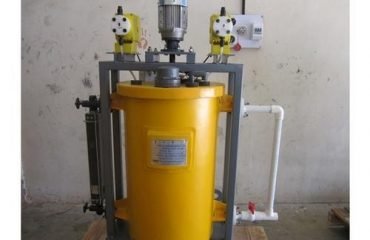Nainital, nestled in the Kumaon region of Uttarakhand, India, is a picturesque hill station known for its breathtaking landscapes, serene lakes, and lush greenery. As a popular tourist destination, it faces the dual challenge of urbanization and environmental conservation. To maintain its natural splendor while accommodating the needs of residents and visitors, Sewage Treatment Plants (STPs) have become essential. In this article, we will explore the significance of STPs in Nainital and their critical role in preserving the town’s clean water sources and pristine environment.
Understanding Sewage Treatment Plants
Sewage Treatment Plants, often referred to as STPs, are specialized facilities designed to treat domestic and industrial wastewater. They employ a combination of physical, chemical, and biological processes to remove contaminants and impurities from sewage, making it safe for discharge into the environment or potential reuse. STPs are indispensable for preserving public health, conserving natural water bodies, and supporting urban development while maintaining ecological equilibrium.
The Significance of STPs in Nainital
Nainital’s unique blend of natural beauty and urbanization makes sewage management a matter of utmost importance. Here’s why STPs are crucial in Nainital:
- Environmental Preservation: Nainital is renowned for its pristine lakes, including Naini Lake, Bhimtal, and others. Effective sewage treatment is vital to protect these natural water bodies from pollution and degradation, preserving the town’s environmental charm.
- Public Health: With a growing population and a thriving tourism industry, ensuring public health and reducing the risk of waterborne diseases are top priorities. STPs play a pivotal role in achieving these objectives.
- Tourism and Economy: Nainital’s economy is closely tied to tourism. Clean water bodies and a healthy environment are essential to sustain tourism, which, in turn, supports the local economy.
- Urban Growth: As Nainital experiences gradual urbanization, the volume of wastewater generated increases. STPs are indispensable for efficiently managing this growing sewage volume.
How STPs Operate
Sewage Treatment Plants employ a multi-stage process to treat wastewater efficiently. Here’s a simplified overview of the typical STP operation:
1. Primary Treatment
In the primary treatment stage, large solids are removed from the sewage through processes like screening and sedimentation. This initial step reduces the load on subsequent treatment stages.
2. Secondary Treatment
Secondary treatment involves biological processes where microorganisms break down organic matter present in the sewage. This step significantly reduces the biological oxygen demand (BOD) and chemical oxygen demand (COD) of the wastewater.
3. Tertiary Treatment
Tertiary treatment is an advanced stage that further refines the effluent to meet stringent quality standards. It may include processes like filtration, chemical treatment, and disinfection to remove any remaining impurities.
4. Discharge or Reuse
The treated sewage is either discharged into water bodies, adhering to regulatory guidelines, or made available for non-potable purposes, such as irrigation, landscaping, or industrial processes.
Benefits of Sewage Treatment Plants
STPs offer numerous benefits for Nainital and its residents:
- Environmental Harmony: STPs safeguard local water bodies, ensuring that lakes and natural resources remain clean and unpolluted, contributing to a cleaner and more sustainable town.
- Public Health: Effective sewage treatment reduces the risk of waterborne diseases, promoting the well-being of Nainital’s residents and visitors.
- Tourism Promotion: Clean and pristine surroundings attract more tourists, bolstering the town’s economy and supporting local businesses.
In Conclusion
Sewage Treatment Plants are vital in Nainital’s journey toward sustainable urbanization while preserving its environmental quality and public health. They play a crucial role in ensuring that the town can continue to grow and develop while preserving its natural beauty and enhancing the quality of life for its residents and visitors. By prioritizing efficient sewage treatment, Nainital can achieve a harmonious balance between urban development and environmental well-being, ultimately building a brighter and more sustainable future for all.





